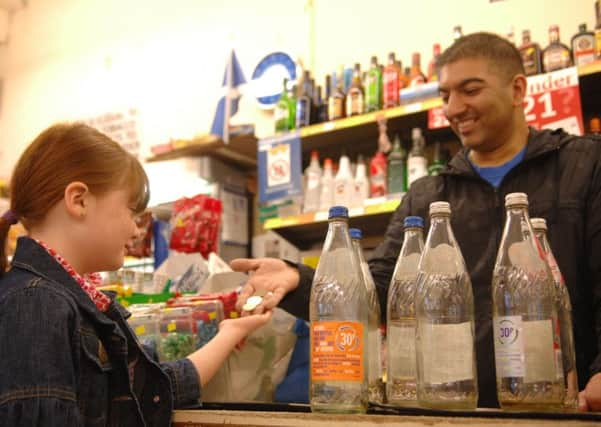Calls for levies based on size ahead of Scotland’s new bottle deposit-return scheme


The landmark cash-back recycling scheme set to be rolled out across Scotland and the UK could see more than 800 million extra plastic bottles being bought and thrown away each year, MSPs are being warned today.
Research for the UK’s drinks can industry suggest the flat-rate charge proposed for the new deposit-return system (DRS), due to be set up in Scotland next year and the rest of the UK in 2023, could have unintended consequences that harm the environment.
Advertisement
Hide AdAdvertisement
Hide AdResults of the study, for aluminium packaging recycling body Alupro, concludes that consumers are likely to stop buying multipacks of canned drinks and opt instead for fewer, larger plastic bottles to minimise the charges paid out for the same quantity of liquid.
Based on the suggested 20p per item charge planned for the Scottish DRS, a 24-can pack would have £4.80 deposit added to the usual cost price, while four two-litre bottles would incur 80p in fees.
When faced with this choice, two thirds of shoppers currently buying cans in multipacks said they would likely switch to plastic bottles.
Even with a 10p flat-rate deposit, half of those polled said they would still choose larger bottles over multipacks.
This could mean millions more plastic bottles being produced each year, potentially ending up as litter – the problem the DRS aims to solve.
Alupro representatives are meeting MSPs at the Scottish Parliament today to call for a range of refundable levies to be set, based on the capacity of each container.
Rick Hindley, executive director of Alupro, said: “We are very concerned that if the same deposit fee is applied regardless of container size, it will have a significant impact on multipacks of aluminium cans.
“The majority of consumers buy multipacks, and these will become twice as expensive as the equivalent volume in plastic if a deposit return scheme is introduced with the same deposit fee.
Advertisement
Hide AdAdvertisement
Hide Ad“This would be a significant up-front cost for household budgets and, as our survey has confirmed, it will influence purchasing habits.”
He urged the Scottish and UK governments to consider the impact of other schemes – the German drink can market is only just starting to recover from a 96 per cent drop in can sales when a deposit scheme was launched in 2003.
He added: “Our survey found 83 per cent of people are concerned that a deposit return scheme could increase the consumption of plastic. We must avoid this scenario playing out in the UK.”
Unlike plastic, aluminium cans are endlessly recyclable.
Three quarters of the aluminium ever produced is still in use today, while three quarters of all plastic made is now in the marine environment.